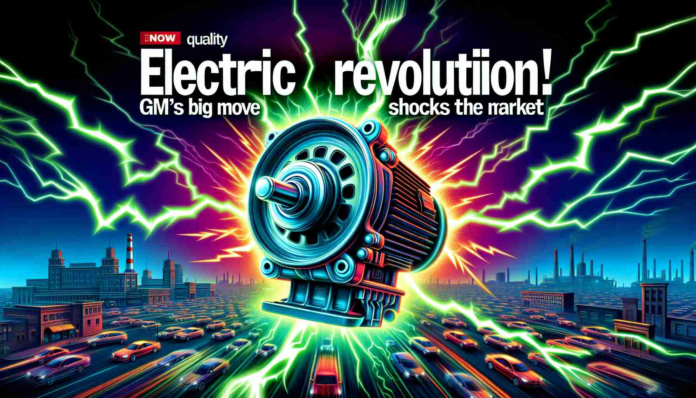General Motors Gears Up for Major Change with a New Electric Pickup
Detroit’s iconic automaker, General Motors, is setting the stage for an electrifying transformation with the much-anticipated launch of a low-cost electric pickup truck. This revolutionary vehicle is poised to reshape the market with its remarkable 350-mile range, powered by innovative lithium iron phosphate (LFP) batteries.
Breaking Boundaries with Battery Technology
In a bold strategic move, GM is seeking to streamline production costs by sourcing LFP batteries from North America. Known for their cost-effectiveness and durability, these batteries represent a cornerstone of GM’s forward-thinking approach to sustainable automotive solutions. Spearheading this major shift is Kurt Kelty, a key figure in the company’s new battery strategy.
Collaboration Sparks Innovation
GM’s efforts to push the envelope don’t stop at battery selection. They’re joining forces with Japanese tech giant TDK Inc. to establish a state-of-the-art facility in the United States for LFP battery manufacturing. Utilizing cutting-edge technology from China’s Contemporary Amperex Technology Co., this collaboration promises to optimize battery economics further.
Redefining the Future of Trucks
As GM prepares to debut this groundbreaking electric pickup, the focus remains on maintaining profitability while advancing sustainable transportation. The automaker is leveraging advanced technologies, including AI and robotics, to refine production processes and enhance efficiency. By doing so, GM aims to offer a pickup that combines affordability with environmental consciousness––a pivotal move towards democratizing electric vehicles for all.
Why GM’s Electric Pickup Could Be the Game-Changer of the Decade
As the race towards electric vehicles intensifies, General Motors is not just keeping pace—it’s looking to lead with its upcoming low-cost electric pickup. But what makes this innovation at the forefront of the automotive revolution?
Unveiling Hidden Advantages
While the focus has been on the 350-mile range of GM’s electric truck, the longer-term implications could be even more impressive. By opting for lithium iron phosphate (LFP) batteries, GM is not only reducing production costs but also addressing concerns over resource scarcity. These batteries require less cobalt, a material notorious for its ethical and environmental concerns. Could this choice push other automakers towards more sustainable supply chains?
The Tech Giants’ Playground
The collaboration between GM and TDK Inc., along with tech inputs from China’s battery powerhouse Contemporary Amperex Technology Co., signals more than just assembly-line integration. It hints at a future where tech giants might begin to play a more pivotal role in automotive engineering, potentially reshaping industry dynamics. Will this cross-industry collaboration become the new norm?
Pros and Cons: A Balanced View
Navigating this new terrain, GM faces both promising horizons and potential pitfalls. Enhanced affordability and sustainability are clear advantages, paving the way for wider EV adoption. However, the reliance on external tech partners might spark controversies around data sharing and intellectual property rights.
Take a deeper dive into the evolving world of electric vehicles at GM’s official website and explore how these changes are reshaping the industry landscape.


